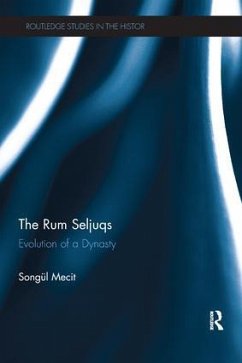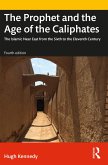Charting the expansion of the Rum Seljuqs from rulers of a small principality to a fully- fledged sultanate ruling over almost the whole of Anatolia, this book demonstrates how ideology, rather than military success, was crucial in this development.
The Rum Seljuqs examines four distinct phases of development, beginning with the rule of Sulayman (473-478/1081-1086) and ending with the rule of Kay Khusraw II (634-644/ 1237-1246). Firstly, Songül Mecit examines the Great Seljuq ideology as a pre-cursor to the ideology of the Rum Seljuqs. Continuing to explore the foundation of the Seljuq principality in Nicaea, the book then examines the third phase and the period of decline for the Great Seljuqs. Finally, the book turns to the apogee of the Rum Seljuq state and questions whether these sultans can, at this stage, be considered truly Perso-Islamic rulers?
Employing the few available Rum Seljuq primary sources in Arabic and Persian, and drawing on the evidence of coins and monumental inscriptions, this book will be of use to scholars and students of History and Middle East Studies.
The Rum Seljuqs examines four distinct phases of development, beginning with the rule of Sulayman (473-478/1081-1086) and ending with the rule of Kay Khusraw II (634-644/ 1237-1246). Firstly, Songül Mecit examines the Great Seljuq ideology as a pre-cursor to the ideology of the Rum Seljuqs. Continuing to explore the foundation of the Seljuq principality in Nicaea, the book then examines the third phase and the period of decline for the Great Seljuqs. Finally, the book turns to the apogee of the Rum Seljuq state and questions whether these sultans can, at this stage, be considered truly Perso-Islamic rulers?
Employing the few available Rum Seljuq primary sources in Arabic and Persian, and drawing on the evidence of coins and monumental inscriptions, this book will be of use to scholars and students of History and Middle East Studies.








